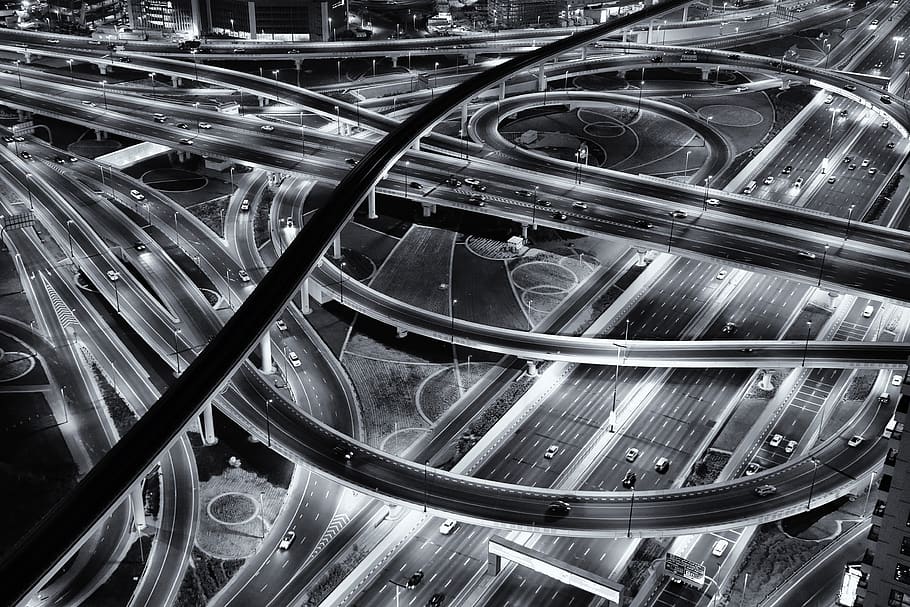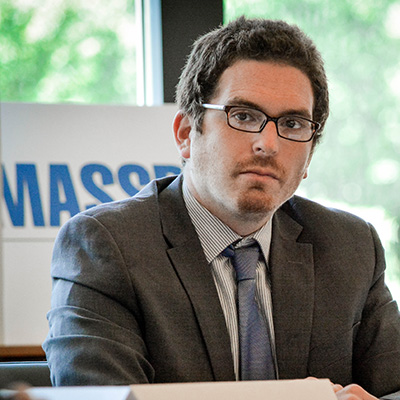Editor's Note: The following article originally appeared on the Frontier Group blog and is republished here with permission. As the Senate considers a revolutionary new infrastructure bill that would require states to repair the highways they already have before build new ones or add lanes, Gideon Weissman offers a timely reminder that some of our roadways deserve to be decommissioned — because they never should have been built in the first place.
Many plans for building new highways are absurd. Our “Highway Boondoggles” series of reports has documented some real head-scratchers, like a $7+ billion highway through the middle of Houston, an $8 billion highway to connect sprawling California suburbia, and a $2 billion, habitat-destroying beltway project in North Carolina.
But a tweet from my friend Ben Hellerstein of Environment Massachusetts got me thinking that we miss something important by limiting our conversation about “boondoggles” to new highway capacity: “Building 12 lanes of highway along the Charles River, in the year 2020, is absurd.”
Rather than a new highway, Ben is referring to 12 lanes that already exist — the Massachusetts Turnpike, which runs through the heart of Boston, as well as Soldiers Field Road which runs right next to it.
When the Mass Pike was extended into Boston in the 1960s, plenty of folks tried to point out the project's absurdity then — like the fact that entire neighborhoods would be bulldozed to make room for it. Now, almost 60 years later, its damaging impacts on our air and health are even more clear. Today, of course, there’s a new concern that wasn’t present in the highway debates of 60 years ago: global warming. As Streetsblog MASS points out, the existence of the highway is an impediment to achieving the state’s climate goals. Nevertheless, it has been here so long that it’s easy to take this giant swath of asphalt through the middle of our city for granted. But should we?
The answer is no — and it's time to apply the same level of scrutiny to existing highways that we do to projects that expand capacity.
Just as with a new highway, existing highways reinforce our dependence on polluting vehicles, which make transportation the leading cause of global warming in the U.S., and which fill our air with pollutants that can sicken or kill us.
Just as with a new highway, existing highways take up valuable space that could be put to far better use: Parks, housing, schools, businesses, churches, libraries and more. The Congress for the New Urbanism (CNU) has described how reclaiming the space taken up by urban highways creates opportunities to “revitalize downtowns, neighborhoods, and waterfronts and strengthen local economies.”[pdf]
And just as with new highways, the transportation benefits of existing ones are enormously overblown. New highways almost never result in traffic relief, because they draw more people to the roads and lead to changes in development that increase car dependence. Similarly, in certain places, removing road capacity can decrease traffic by resulting in shifts in transportation choices and more efficient use of the road network.
For these reasons and more, many places have started turning a critical eye toward highways that they’ve lived with uncomfortably for decades. Cities like Akron, Ohio, and Rochester, New York, have removed urban highway capacity, and used the new space to add parks and neighborhoods. And CNU regularly updates its list of “freeways without futures,” usually highlighting roads that divide and damage communities.
Here in Boston, there’s no better time for this kind of rethinking than right now, as we are about to sink $1 billion into rebuilding one small stretch of our own urban highway. The question is, will we rebuild in a way that reinforces the problems caused by the road, or that fixes them?







